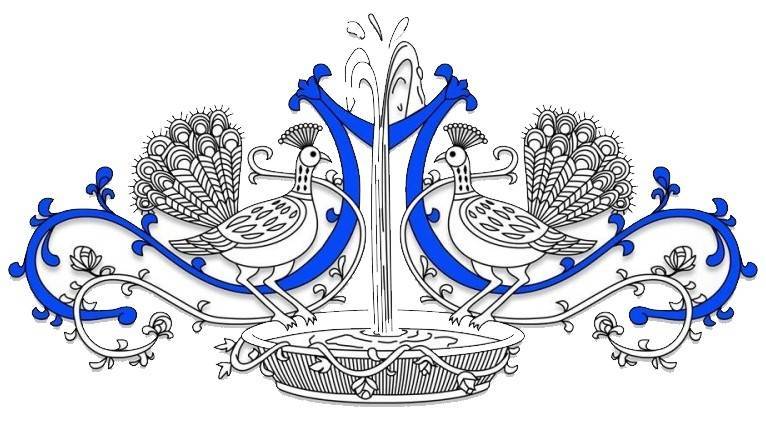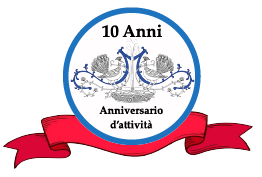“What is she doing? Why is the teacher moving her hand over the blackboard, without writing anything?” This is how Natascia made the shift from light to darkness, practically overnight. A good-night’s kiss swimming in the colors of her dolls, the lights in her room and the little drawings; then the dark starting to gain strength and expand. First on the blackboard, where the marks left by the chalks vanished; then in her life. “We visited several eye doctors,” said Natascia, today 38 years old, married, with two children. “They went through the list of eye pathologies in children: farsightedness, shortsightedness, astigmatism… Then, after three years of making the rounds from one specialist to another, the bad news: retinitis pigmentosa, a macular degenerative condition. And that was when my world fell apart.”
Her mother, Anna Maria, wasn’t ready to give up. She had heard, on TV, of a center in Italy that was sending patients to Russia to have them operated there and get rid of eyeglasses. She decided to act immediately: she left her hometown in central Italy and traveled for hundreds of kilometers, to see if there was any hope for Natascia as well. At the center they had no previous experience with the condition, but Natascia’s medical records were sent to Moscow anyway. After the treatment approval, they made the trip (“it cost us ten million Italian liras;” told us father Stefano, “just for comparison, you could buy a house with fifteen million, at the time”); then lived with the fear of something going wrong until the day of the intervention. “I was the first woman to be operated for that condition; practically they were experimenting on me.” The doctors succeeded in stopping the degenerative process, but they failed to cure her. “It was better than nothing,” she added, “but then life became harder. I didn’t feel well, I was embarrassed, I refused to go out. Quite an ordeal, made worse by people speaking behind my back, or even being mean. I had to quit school, given what I was going through. And my beauty was gradually transforming into a weapon some people loved to hurt me with: she’s pretty, what a pity though…”
Until the day when a friend told me: ‘Only those who do evil must walk around with their head down, not you.’ It was like a slap in the face for me; I raised my head and realized that I could do anything I wanted, even without my sight.” Let’s be clear, though: she still hopes for a cure, still wants it. She hasn’t surrendered to her condition; but she’s serene. “The truth is,” she said, “that sight makes you lazy: we stare at the apple we are peeling, at the floor we are cleaning, at the skirt we are ironing or when we get off the sidewalk. Yet, there’s no need for this. I can do anything, from shopping to cooking and house chores…” Actually, Natascia has achieved a lot more: she relied on that little sight she was left to find a job as a model, in Milan: “I could see nothing around me, but I just followed the strip of light on the floor. And kept going forward!”
She has marched on like this all her life, with her condition barely contained. She has fought against mistrust, the difficulty to find a job and the slippery road of commiseration. And then she met the man of her dreams – Arsenio, who would become her husband – and left the fashion world, “even though they still ask me to walk the runway.” Arsenio is a special person: he loves his wife without pitying her and stands by her without lamenting. “He seems incapable of hurting me, even when we happen to have a fight.” His support is humble and strong, based on Natascia’s hard work and assuring presence. Her life is, after all, more normal and active than many other women’s, who for a few pounds or the nose they find too big or other similar concerns barricade themselves at home and surrender to their imaginary handicap.
Then, the actual turning point of her life arrived. While talking to her doctor during a gynecologic exam, she asked whether her condition was hereditary. The doctor’s response was petrifying: “It’s not about heredity. The fact is that pregnancy can make your condition worse and shut your eyesight down for good.” This time, though, her world didn’t fall apart: “I wanted to become a mother, I wanted to give the gift of life to my children. I never thought of denying their existence, for some probabilistic reasoning about my blindness. So Tommaso was born, then Elia arrived. I am happy to hold them in my arms today, laugh with them and live my life with them.”
It’s a choice of life, based on the trust I have in God and the faith I never lost, in spite of all of life’s trials. Then she sent a letter to the Pope, as evidence of her closeness to the Lord and the willingness to share a path completed – and started – with her marriage. This is the deep significance of her choice. In a world where a child is too often seen as a burden, if not a disgrace; where people wonder about how to get rid of them before they become a problem, there are those who embrace motherhood openly, without hesitation and without worrying of their own comfort. Natascia has even had an eye tattooed on her belly, the very center of life. And not by accident.
Translation provided by ProLingua










